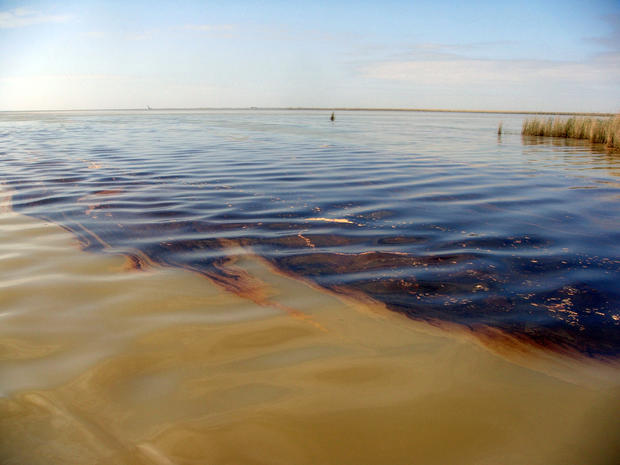U.S. Oil and gas industry oversight leave spills unreported
As part of a CBS News investigation into the number of spills, leaks, fires and explosions at wells and pipelines by the U.S. oil and gas industry, we found not one single government agency oversees the entire industry nationwide. Instead, regulation is wildly scattered across more than three dozen state and federal agencies, all of which operate under different legal mandates and maintain information about incidents (such as spills, leaks, fires and explosions) in different databases using different criteria.
Critics say the fragmented oversight means it's nearly impossible to get a complete picture of how safe the U.S. oil and gas industry really is. The system also allows some incidents to go unreported.
Oversight of Oil and Gas Produced on Federal Land and Water
According to information provided to CBS News by the U.S. Energy Information Administration, 29 percent of the
U.S. crude oil and natural gas is produced on federal land and water. The production of this oil and natural gas is regulated and overseen by a patchwork of federal agencies. Here's who oversees what:
---U.S. Department of Interior/The Bureau of Land Management (BLM): oversees oil and gas production on federal lands.
---U.S. Department of Interior/The Bureau of Ocean Energy Management, Regulation and Enforcement: oversees oil and gas production off-shore in federal waters.
---U.S. Department of Transportation/The Pipeline and Hazardous Materials Safety Administration (PHMSA): oversees pipelines.
---Environmental Protection Agency (EPA): mission is to protect human health and the environment; plays several roles overseeing the oil and gas industry including regulating discharges of pollutants.
Oversight of Oil and Gas Produced on State-Regulated Land and Water
State regulators are responsible for overseeing the production of the 71 percent of U.S. crude oil and natural gas that is produced on state-regulated land and water.
As we collected data, we found that each state agency has different reporting requirements for what constitutes a "spill" and therefore, what oil and gas producers must report to regulators and publicly disclose. For example, in one state, oil and gas companies may be required to report all spills of 1 barrel or more while in other states, it may be 100 barrels or more. In another state, oil and gas companies may be required to report all spills involving any substance while in other state, oil and gas companies may only be required to report spills and leaks that involve crude oil. That means a spill or leak that is reporting in one state may not be counted in another.
Additionally, a survey conducted by CBS News found that on average there is just 1 state inspector for every 2,000 oil and gas wells nationwide.
